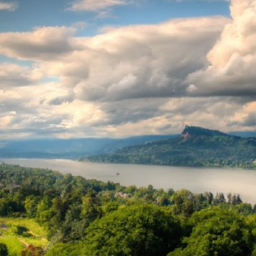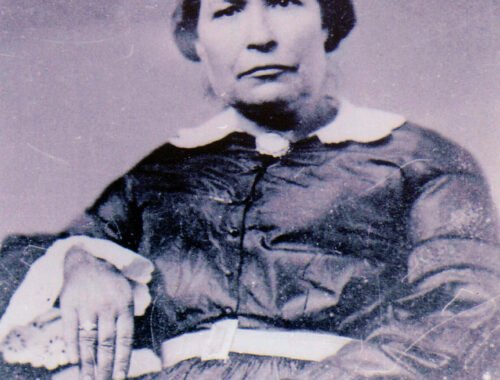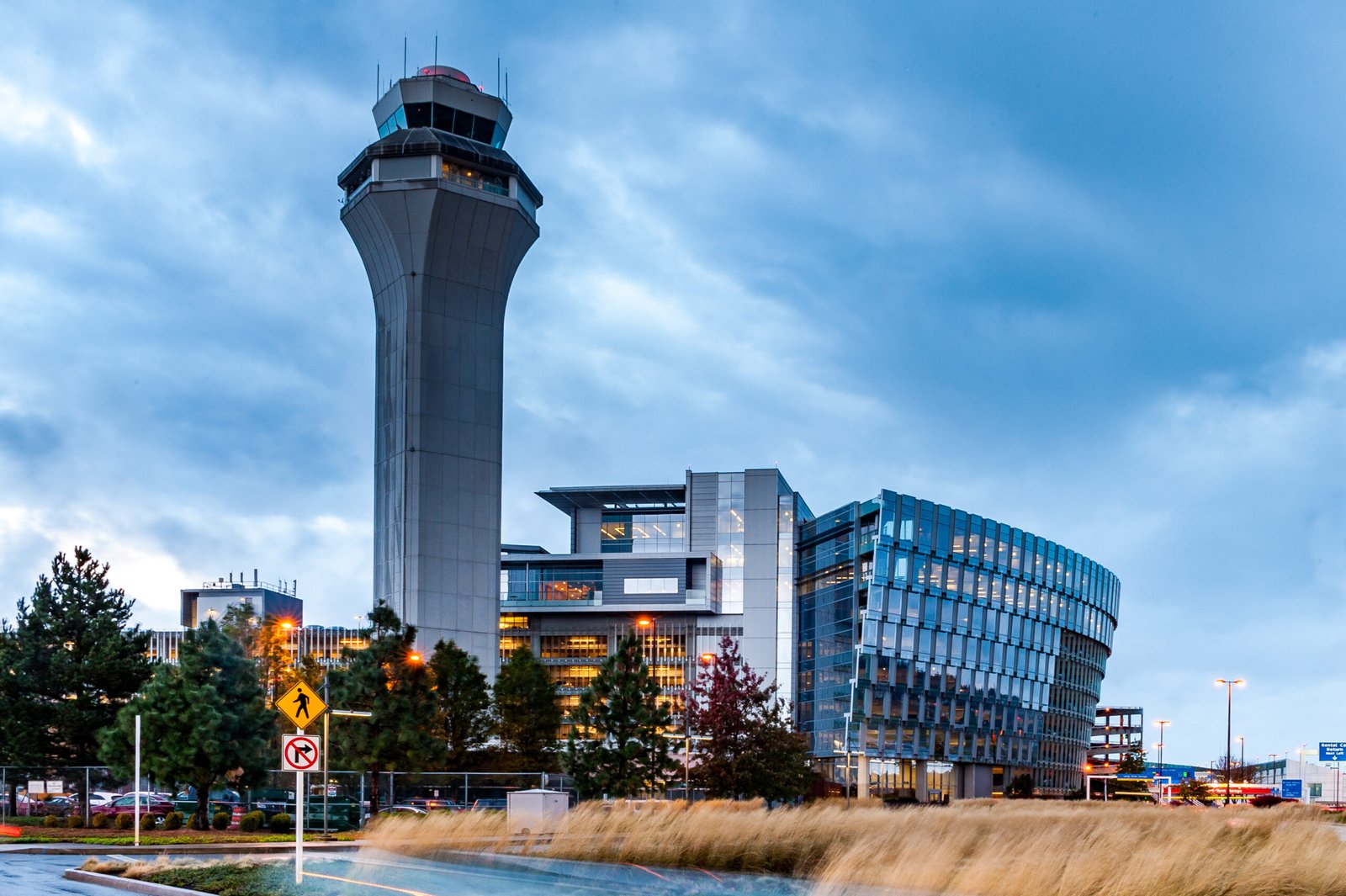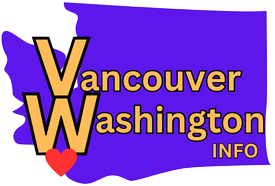
Visiting Town Guide | Moving to Vancouver, WA Area
Are you thinking about moving to the Vancouver/Camas/Clark County, Washington area? Well, you’re in luck because we have created a video just for you! In this video, we provide our best tips for planning a trip to the area and give you an idea of what to expect when you visit. Whether you’re considering a move or just curious about the area, we would love to hear from you. Reach out to us and let’s grab a cup of coffee to discuss your questions and provide recommendations for neighborhoods to explore. So, if you’re still in the exploratory phase or have a definite plan to move, these tips will help you make the most of your trip and get a feel for the vibrant community in Southwest Washington.
Table of Contents
ToggleUnderstanding the Vancouver, WA Area
Understanding Vancouver’s culture
Vancouver, WA, is a city with a rich cultural heritage and a vibrant community. As the fourth-largest city in Washington state, it offers a diverse range of cultural experiences for residents and visitors alike. From its beautiful parks and outdoor recreational activities to its bustling downtown core, Vancouver has something to offer everyone.
The city has a strong appreciation for the arts, with numerous galleries and theaters showcasing local talent. You can immerse yourself in the local culture by attending art shows, live performances, and music festivals that take place throughout the year. The Vancouver Symphony Orchestra and the Clark County Historical Museum are also must-visit attractions for those interested in the city’s cultural heritage.
Exploring the Vancouver, WA state
Vancouver, WA, is located in Clark County, Washington, which is known for its stunning natural beauty and outdoor recreational opportunities. The area is surrounded by breathtaking mountains, including Mount St. Helens and Mount Hood, offering scenic hiking and camping options for outdoor enthusiasts.
Nature lovers can explore the Columbia River Gorge, which offers numerous waterfalls, hiking trails, and breathtaking viewpoints. Additionally, the region is home to several state parks, including Battle Ground Lake State Park and Paradise Point State Park, where you can enjoy activities such as boating, fishing, and picnicking.
The Vancouver, WA area also boasts a thriving wine industry, with several vineyards and wineries offering tours and tastings. You can spend a day exploring the local wine scene, sampling award-winning wines and enjoying the picturesque vineyard views.
Knowing the Clark County
Clark County, where Vancouver is situated, is a diverse and thriving community. It is not only known for its natural beauty but also for its strong education system, healthcare facilities, and a wide range of recreational activities.
The county is home to an abundance of parks and green spaces, providing residents and visitors with ample opportunities for outdoor activities such as hiking, biking, and picnicking. You can also enjoy water-based activities on the Columbia River or relax on one of the county’s many scenic beaches.
Clark County is also known for its excellent schools, with numerous public and private educational institutions providing quality education to students of all ages. In addition, the county has a robust healthcare system, ensuring that residents have access to top-notch medical care.
Planning Your Visit
Best time to visit Vancouver, WA
The best time to visit Vancouver, WA, largely depends on your preferences and what you hope to experience during your visit. The summers in Vancouver are typically warm and dry, making it an ideal time for outdoor activities and exploring the city’s natural beauty. The months of June to August offer the most comfortable weather for outdoor adventures.
If you enjoy milder temperatures and smaller crowds, consider visiting during the shoulder seasons of spring (March to May) and fall (September to November). During these times, you can still enjoy pleasant weather while taking advantage of lower accommodation rates and shorter lines at popular attractions.
The winter months in Vancouver can be rainy, but they offer a unique chance to experience the city’s cozy atmosphere. You can explore indoor attractions such as museums, art galleries, and cozy cafes while enjoying the occasional winter festivities.
How long to plan your visit
To truly get a sense of Vancouver, WA and its surroundings, it is recommended to plan a visit of at least 3 to 5 days. This will allow you enough time to explore the city, visit nearby attractions, and get a feel for the different neighborhoods you may be considering for a potential move.
If you have specific activities or interests you want to pursue, such as hiking or wine tasting, you may want to extend your visit to ensure you have enough time to fully enjoy those experiences. Additionally, if you are considering a more definitive move, it may be worth planning a longer visit to thoroughly explore the area and get a sense of what it would be like to live there.
Exploratory vs definite moving plans
When planning your visit to Vancouver, WA, it’s important to consider whether you are in the exploratory stage or have definite plans to move. If you are still in the exploratory phase, your main goal should be to get a sense of the city’s culture, neighborhoods, and amenities. This will help you determine if Vancouver is the right fit for you and your lifestyle.
On the other hand, if you have already made the decision to move, your visit can be more focused on practical matters such as exploring potential neighborhoods, visiting properties, and gathering information about schools, healthcare, and other essential services in the area.
Regardless of your stage of planning, keep an open mind and soak up as much information as possible during your visit to make informed decisions about your future in Vancouver, WA.
Getting Around the Vancouver, WA Area
Renting or using your own car
Renting a car is a convenient option if you are visiting Vancouver, WA and plan to explore the surrounding areas. Several car rental companies operate in the city and at the Portland International Airport, providing a wide range of vehicle choices to suit your needs.
Having your own car gives you flexibility and independence to explore at your own pace. It allows you to easily access attractions and destinations outside of the city center, such as the Columbia River Gorge or the nearby city of Portland.
If you prefer to use your own car, be sure to familiarize yourself with the local driving laws and regulations. Vancouver has well-maintained roads, and parking is generally readily available, making it a convenient option for getting around.
Public transportation availability and efficiency
Vancouver and the surrounding Clark County area have a public transportation system that includes buses and light rail, making it easy to navigate the region without a car. The public transit system, operated by C-TRAN, provides convenient connections within Vancouver, as well as to nearby cities such as Portland, Oregon.
The buses in Vancouver are clean, comfortable, and equipped with amenities such as free Wi-Fi. The light rail system, known as the MAX, is a popular choice for commuting between Vancouver and Portland, offering a convenient and cost-effective way to travel between the two cities.
For visitors who plan to rely on public transportation, it is important to familiarize yourself with the schedules and routes in advance. This will help you plan your itinerary and ensure you can conveniently reach your desired destinations.
Navigating through Vancouver, Clark County, and Camas
Vancouver and its neighboring areas, including Clark County and Camas, are well-connected and easily navigable. The road network is well-developed, with clear signage and a layout that facilitates easy navigation.
To navigate the area effectively, it’s helpful to have a GPS navigation system or use a navigation app on your smartphone. These tools can provide turn-by-turn directions, real-time traffic updates, and alternative routes to help you reach your destinations efficiently.
During your visit, take the time to familiarize yourself with the main roads and highways in the area. Some key routes to be aware of include Interstate 5, which connects Vancouver to Portland and Seattle, and State Route 14, which runs along the northern bank of the Columbia River and provides scenic views of the region.
Scheduling Property Visitations
Understanding the property market
Before scheduling property visits in Vancouver, WA, it’s essential to understand the local property market. This will help you set realistic expectations and narrow down your search based on your budget and preferences.
It’s a good idea to research the average home prices in the area and compare them to your budget. Additionally, understanding the current market conditions, such as whether it’s a buyer’s or seller’s market, can provide insight into pricing and competition.
Working with a local real estate agent who is knowledgeable about the Vancouver, WA market can be invaluable. They can provide guidance, suggest suitable neighborhoods based on your preferences, and offer information on the availability of properties that meet your criteria.
Limitations on property visits
When scheduling property visits in Vancouver, WA, keep in mind that there may be limitations or restrictions in place. Some homeowners or real estate agents may require pre-approval or proof of financing before allowing visits to their properties.
Additionally, due to the current COVID-19 pandemic, there may be additional safety protocols in place. It’s important to check local guidelines and adhere to any restrictions or guidelines related to property visits to ensure the safety of both yourself and the homeowners.
Schedule visits with hesitant moving plans
If you are still in the exploratory phase of your moving plans, it can be helpful to schedule property visits even if you are unsure about moving at this stage. By physically visiting properties and exploring different neighborhoods, you can gain a better understanding of what you are looking for in a potential future home.
During these visits, take note of the features and amenities that appeal to you, as well as any aspects that may not meet your requirements. This information will be invaluable when making future decisions about relocating.
Remember that scheduling visits does not commit you to anything. It is simply an opportunity to gather information, explore different options, and make a more informed decision when the time comes.
Selecting Neighborhoods
Investigating neighborhood profiles
Selecting the right neighborhood is crucial when considering a move to Vancouver, WA. Each neighborhood has its own unique character, amenities, and lifestyle, and finding the one that aligns with your preferences is essential.
To investigate neighborhood profiles, start by researching online resources that provide information about the different neighborhoods in Vancouver. Look for details such as proximity to schools, parks, shopping centers, and public transportation options. Online forums and community groups can also be a valuable source of insights and personal experiences.
Additionally, consider reaching out to locals or connecting with a local real estate agent. They will have in-depth knowledge of the various neighborhoods and can provide guidance based on your specific needs and preferences.
Driving through neighborhoods
Once you have narrowed down your list of potential neighborhoods, take the time to drive through each one to get a firsthand experience. Pay attention to the overall atmosphere, the condition of the streets and houses, and the availability of amenities such as parks, schools, and shopping centers.
Driving through the neighborhoods will give you a sense of the overall vibe and help you gauge if it aligns with your lifestyle and preferences. Take note of any positive or negative aspects that stand out during your drive-through, as these observations will be valuable when making your final decision.
Understanding living conditions and amenities in neighborhoods
To truly understand the living conditions and amenities in each neighborhood, it’s important to explore beyond just driving through. Take the time to walk around, visit local parks, and talk to residents if possible. This will give you a more authentic feel for the neighborhood and allow you to assess if it meets your requirements.
Consider visiting local amenities such as grocery stores, restaurants, and recreational facilities. This will give you an idea of the convenience and variety of services available in each neighborhood. If access to specific amenities is crucial to your lifestyle, ensure that they are easily accessible from the neighborhood you are considering.
Remember that each neighborhood has its own unique character, and what may be important to one person may not be a priority for another. Trust your instincts and choose a neighborhood that feels like the right fit for you and your lifestyle.
Attending Open Houses
Frequency and timings of open houses
Attending open houses is an excellent way to gather information and get a feel for different properties in Vancouver, WA. Open houses are typically held on weekends, although some properties may have weekday open house events as well. It’s a good idea to check local listings or work with a real estate agent to get information about the specific open houses you are interested in attending.
Keep in mind that the availability of open houses can vary, especially during times of high demand or limited inventory. Stay updated with local listings and be prepared to adjust your schedule accordingly to ensure you don’t miss out on opportunities.
Protocol for attending open houses
When attending open houses, it’s important to follow proper protocol and etiquette. In general, you should arrive on time and be respectful of the property and the homeowner. Remove your shoes if requested, refrain from touching personal belongings, and avoid taking photos without permission.
Engage with the real estate agent present at the open house and ask any questions you may have about the property or the neighborhood. They can provide valuable insights and additional information to help you make an informed decision.
Remember that open houses can be busy, especially during peak times. Be patient and respectful of other attendees and give yourself enough time to thoroughly explore the property and gather the information you need.
Benefits of attending open houses for information gathering
Attending open houses has several benefits when gathering information about potential properties. It allows you to see the property in person, assess its condition, and envision yourself living there. You can get a sense of the layout, the flow of the space, and the natural light.
Attending open houses also provides an opportunity to ask specific questions about the property. You can inquire about any renovations or upgrades, maintenance history, and potential issues. The real estate agent present can provide additional details and insights that may not be available in the property listing.
Furthermore, attending open houses allows you to see firsthand how the property fits into the neighborhood. You can observe the surroundings, the neighbor’s houses, and the overall atmosphere, which can be difficult to gauge solely from online listings.
Exploring Homes and Communities
Studying homes saved on listing sites
Before visiting Vancouver, make use of online listing sites to study the homes available in the area. Save the properties that catch your interest, and take note of their key features, such as the number of bedrooms and bathrooms, square footage, and amenities.
As you study the homes, consider your own preferences and requirements. Think about what is non-negotiable for you, such as the number of bedrooms, and what would be nice to have but not essential, such as a backyard or a home office. This will help you narrow down the options and focus on properties that align with your priorities.
Additionally, pay attention to the price range of the homes you are interested in. This will help you set realistic expectations and ensure that the properties you visit during your trip fall within your budget.
Examining vicinity of homes
When exploring homes in Vancouver, WA, it’s important to examine the vicinity of each property. Consider the nearby amenities, such as schools, parks, shopping centers, and healthcare facilities. Evaluate the convenience of the location and the accessibility to essential services based on your needs.
You may also want to check the proximity to major roads and highways, as well as public transportation options. This will help you assess the convenience of commuting and how easily you can reach other parts of the city.
Be sure to explore the neighborhood beyond just the immediate vicinity of the home. Take note of the general upkeep of the surrounding houses, the cleanliness of the streets, and the overall atmosphere. These observations can give you a better sense of the community and help determine if it is a place where you can see yourself living.
Observing homeowner behaviors in communities
As you explore different communities in Vancouver, WA, take the opportunity to observe homeowner behaviors. Pay attention to how well-maintained the properties are, whether neighbors interact with each other, and if there is a sense of pride in the community.
Observing homeowner behaviors can give you insights into the level of community involvement and the overall atmosphere of the neighborhood. If you notice neighbors actively engaging with one another and participating in community events and initiatives, it may indicate a close-knit and neighborly community.
Look for signs of well-kept yards, maintained exteriors, and the presence of amenities such as playgrounds or community gathering spaces. These factors can contribute to a positive living experience and a sense of belonging within the community.
Documenting Your Observations
Importance of notes during the visit
During your visit to Vancouver, WA, it’s crucial to take detailed notes about the properties and neighborhoods you explore. These notes will serve as a reference point when you are making decisions about relocating and can help you compare different options after the visit.
In your notes, include details such as the address of the property, key features, any concerns or reservations you may have, and the overall impression of the neighborhood. Be as specific as possible, noting both positive and negative aspects.
Taking notes during your visit allows you to capture your immediate impressions and prevents important details from getting lost in the midst of multiple property viewings. It also helps you recall specific observations and compare properties side by side when reviewing your options.
Using location marker screenshots
In addition to written notes, using location marker screenshots on your smartphone can be a helpful way to document your observations. Use a mapping app to mark the locations of properties, landmarks, or points of interest that you visit during your trip.
Taking screenshots of these markers can help you visualize the geographical layout of the area and easily refer back to specific locations. It can be particularly useful when comparing different neighborhoods and their proximity to amenities or desired features.
These location marker screenshots can serve as a visual reference when reviewing your notes or sharing your observations with others. They provide a spatial context that enhances your understanding of the different areas you encountered during your visit.
Organizing and reviewing your notes for decision making
After your visit to Vancouver, WA, take the time to organize and review your notes for decision-making purposes. This may involve categorizing your observations by neighborhood, highlighting common trends, and identifying any standout properties.
By reviewing your notes, you can refresh your memory and gain a better perspective on the properties and communities you visited. Look for patterns, such as recurring concerns or standout features, that can guide your decision-making process.
Consider creating a pros and cons list for each property and neighborhood, taking into account your priorities and preferences. This will help you weigh the different factors and ultimately choose the option that aligns best with your needs.
Sharing your notes with a trusted friend, family member, or real estate agent can also provide valuable insights and an outside perspective. They can help you identify any blind spots or provide additional information that may influence your decision.
Accessing Area Information
Using local guides for activities and sites
To make the most of your visit to Vancouver, WA, make use of local guides for information about activities and attractions in the area. Look for online resources or guidebooks that provide recommendations on popular sights, scenic drives, hiking trails, and other outdoor activities.
Local guides can help you discover hidden gems and lesser-known attractions that may not be widely advertised. They can provide insider tips and suggestions based on their own experiences and knowledge of the area.
Additionally, consider reaching out to locals through online forums or community groups. They can provide personalized recommendations tailored to your specific interests, whether you’re looking for family-friendly activities, dining options, or cultural experiences.
Incorporating local recreational activities during the visit
One of the advantages of visiting Vancouver, WA, is the abundance of recreational activities available in the area. From exploring the Columbia River Gorge to hiking in Mount St. Helens National Volcanic Monument, there is something for everyone to enjoy.
Incorporate local recreational activities into your visit to get a taste of the outdoor lifestyle that Vancouver has to offer. Go for a hike in one of the nearby state parks, rent a kayak or paddleboard to explore the Columbia River, or take a scenic drive along the coast.
Consider incorporating activities that align with your interests and hobbies. If you enjoy golfing, book a tee time at one of the beautiful golf courses in the area. If you’re a wine enthusiast, schedule a wine tasting at one of the local vineyards.
By immersing yourself in the local recreational activities, you can get a firsthand experience of the lifestyle that Vancouver, WA, offers and determine if it aligns with your interests and preferences.
Enjoying local food and beverages
No visit to Vancouver, WA, is complete without indulging in the local food and beverage scene. The city boasts a diverse culinary landscape, with a wide range of restaurants, cafes, and breweries to satisfy every palate.
Explore the downtown area, where you’ll find an array of dining options that showcase local ingredients and flavors. Sample Pacific Northwest seafood, enjoy farm-to-table cuisine, or indulge in international dishes from various cultural cuisines.
Be sure to also explore the local brewery scene, as Vancouver and the surrounding areas have a thriving craft beer culture. Take a brewery tour, sample different beers, and chat with local brewers to gain insights into the region’s craft beer industry.
To fully immerse yourself in the local food and beverage scene, consider attending food festivals and farmers’ markets that showcase local vendors and their products. This will give you a taste of the culinary offerings and provide an opportunity to connect with the local community.
Conclusion
Summarizing the process of visiting Vancouver, WA before moving
Visiting Vancouver, WA before making a move is a crucial step in ensuring that the city and its surrounding areas are the right fit for you. By understanding the local culture, exploring the city and its neighborhoods, and immersing yourself in the community, you can gather the information necessary to make informed decisions about your future in Vancouver.
Start by understanding Vancouver’s culture and the unique experiences it offers. Explore the city’s vibrant arts scene, enjoy its stunning natural beauty, and immerse yourself in its diverse community.
Plan your visit according to the best time to experience Vancouver’s climate and make sure to allocate enough time to thoroughly explore the city and its surrounding areas. Consider the stage of your moving plans and whether you are in the exploratory or definitive phase.
Decide on the best mode of transportation for getting around the Vancouver area, whether it’s renting a car or utilizing public transportation. Familiarize yourself with the road network and public transit options available to ensure efficient navigation.
When scheduling property visits, understand the local property market and any limitations or restrictions that may apply. Schedule visits even if you have hesitant moving plans, as they provide valuable information and insights into potential future homes.
Select neighborhoods based on thorough investigation and driving through each one. Consider the amenities, living conditions, and homeowner behaviors when making your decision.
Attend open houses to gather more information about potential properties and benefit from the insight of real estate agents and homeowners. Take notes, use location marker screenshots, and effectively organize your observations to aid in decision making.
Access area information through local guides, incorporating local recreational activities, and enjoying the local food and beverage scene. Immerse yourself in the community to truly experience Vancouver, WA, and gain a deeper understanding of what it has to offer.
By following these tips and utilizing the contacts available for help with relocating, you can make the most out of your visit to Vancouver, WA and ensure a smooth transition if you decide to make it your new home.
You May Also Like

Who was Esther Short?
17 September 2023
How To Get to Vancouver From The Portland Airport
4 August 2023


